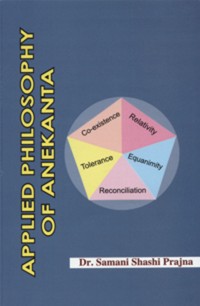It is due to one-sided prejudiced mind set, one misunderstands others’ viewpoints and behaves otherwise. In the world of western philosophy, there occurred a paradigm shift from philosophizing the metaphysical concepts and epistemological aspects to the new horizon of problem of communication. The western Pre-greek philosophers, who were in search of the ultimate stuff from which this world of being originated, then they thought about one to many substances, then Greek philosophers began to determine their nature and features. In the meadiveal period, the government was dominated by Pope and no independence of thought was allowed and Galilieo was burnt alive for expressing his novel thought. In the modern period, due to development in science and mathematics, a new renaissance came into being and the epistemic view of Realist and Idealist schools of thinking became the central issue of the philosophy. After a long debate between the two schools of thoughts, it was ultimately reconciled by Immanuel Kant that, neither the realist nor the idealist stand point will suffice to solve the problems of the epistemic world and the ethical world and he reconciled it by declaring that ‘concepts without precepts are blind and precepts without concepts are empty’.
Applied Philosophy Of Anekanta: 4.3 Elements of Anekānta in Western Philosophy and Post-Modern Philosophy
Author:
 Dr. Samani Shashi Pragya
Dr. Samani Shashi Pragya
 Dr. Samani Shashi Pragya
Dr. Samani Shashi Pragya
Published: 26.05.2014
Sources
Title: Applied Philosophy Of Anekanta
Edition: 2012
ISBN: 978-81910633-8-7
Publisher: JVBI Ladnun, India
HN4U Online Edition: 2014.02
Edition: 2012
ISBN: 978-81910633-8-7
Publisher: JVBI Ladnun, India
HN4U Online Edition: 2014.02


Page glossary
Some texts contain footnotes and glossary entries. To distinguish between them, the links have different colors.
Page statistics
This page has been viewed 696 times.